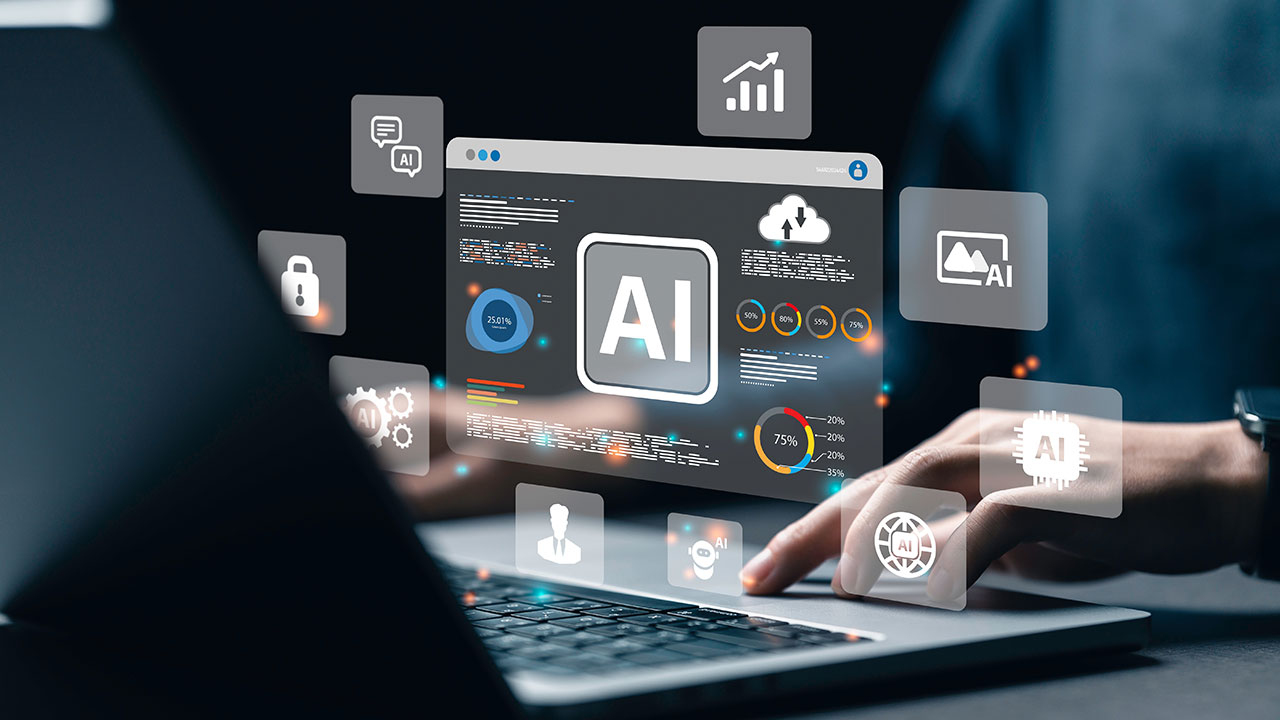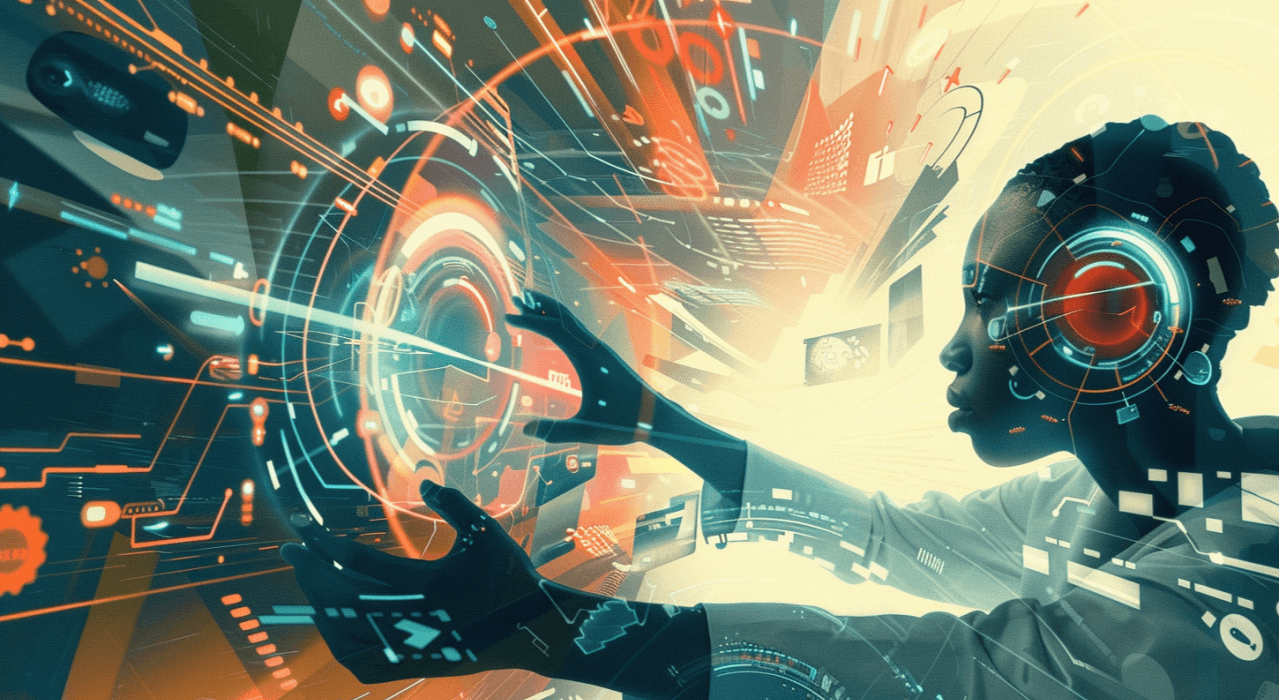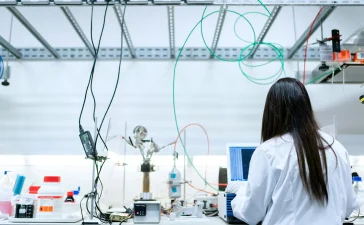The web has come a long way from the static pages of the 1990s. Today, it’s not just a platform for information — it’s an intelligent, immersive, and interactive ecosystem that powers every aspect of modern life. As we step into 2025, the convergence of artificial intelligence, blockchain, cloud computing, and immersive technologies is reshaping how we connect, work, and experience the digital world.
This transformation isn’t just about innovation — it’s about redefining what the web means for people, businesses, and society as a whole.
1. From Web 2.0 to Web 3.0: The Decentralized Revolution
For over two decades, the internet has been dominated by centralized platforms — social networks, search engines, and e-commerce giants that control data and shape online experiences. But Web 3.0, often called the “decentralized web,” is changing that model.
At its core, Web 3.0 gives users ownership and control of their data through technologies like blockchain, decentralized applications (dApps), and smart contracts. Instead of relying on big tech intermediaries, users can interact directly with each other in peer-to-peer networks.
For example, decentralized finance (DeFi) platforms are revolutionizing banking by removing the middleman, while non-fungible tokens (NFTs) are creating new digital economies around art, media, and gaming.
In 2025, Web 3.0 is no longer a futuristic concept — it’s an evolving reality that promises greater transparency, privacy, and user empowerment.
2. Artificial Intelligence: The Engine of the Modern Web
AI has become the brain of the modern internet. From chatbots and personalized recommendations to intelligent search and predictive analytics, artificial intelligence is the force that makes the web smarter and more human-like.
Generative AI — like ChatGPT and similar technologies — is transforming content creation, customer service, and even software development. Businesses are using AI to write marketing copy, generate code, design websites, and provide instant support through natural language interactions.

In web development, AI tools are optimizing everything from layout design to UX testing. Machine learning algorithms analyze user behavior, helping websites adapt in real time to deliver personalized experiences.
However, the rapid rise of AI also brings challenges — ethical concerns, data privacy issues, and fears of job displacement. In 2025, the biggest question is not what AI can do, but how we can use it responsibly to enhance, rather than replace, human creativity and decision-making.
3. The Rise of Immersive Web Experiences
The next frontier of web technology lies in immersion. With the growth of virtual reality (VR), augmented reality (AR), and mixed reality (MR), the web is evolving from a two-dimensional space into a fully interactive environment.
Imagine browsing an online store not by scrolling through images but by virtually walking through it, examining products as if they were real. Or attending a live concert with friends in a virtual stadium, feeling presence and proximity even across continents.
The rise of the Metaverse — a persistent, shared, digital universe — is accelerating this shift. While the hype has cooled since its early buzz, major tech companies continue to invest heavily in AR/VR development, creating new possibilities for education, remote work, gaming, and e-commerce.
By 2025, immersive web experiences are becoming mainstream, blending physical and digital realities to create what experts call “phygital” interactions — where online and offline life merge seamlessly.
4. Cybersecurity: Protecting the Digital Future
As the web becomes more powerful, it also becomes more vulnerable. Cybersecurity remains one of the most pressing challenges of our digital era.
Data breaches, ransomware attacks, and phishing scams have grown more sophisticated, targeting individuals and businesses alike. The explosion of connected devices — from smart homes to wearable tech — has expanded the attack surface exponentially.
In response, cybersecurity innovation has accelerated. Zero Trust Architecture, biometric authentication, and quantum encryption are redefining how organizations protect digital assets.
Governments and tech companies are also pushing for stronger privacy standards, such as Europe’s GDPR and the growing push for global AI regulation. The modern web can only thrive if users feel safe — and cybersecurity is the foundation of that trust.
5. Cloud Computing and Edge Intelligence
Cloud computing has long been the backbone of digital innovation, enabling scalability, collaboration, and remote work. But as data volume and processing demands skyrocket, edge computing — processing data closer to its source — is emerging as the next evolution.
In 2025, smart devices, IoT sensors, and autonomous systems rely heavily on edge intelligence to deliver faster, more efficient performance. Instead of sending every bit of data to centralized servers, these devices analyze information locally, reducing latency and improving response times.
This hybrid model — combining the cloud’s scalability with the edge’s speed — is essential for real-time applications like self-driving cars, smart cities, and remote healthcare.
Together, cloud and edge computing form the invisible infrastructure that powers the web’s new capabilities.
6. The Ethical Web: Privacy, Regulation, and Responsibility
With great connectivity comes great responsibility. The ethical dimension of web technology is now central to its evolution.
In the past decade, users have grown increasingly aware of how their data is collected, stored, and used. Governments are responding with new regulations, while companies are investing in privacy-by-design frameworks — embedding ethics and transparency into digital systems from the start.
The web of the future must balance innovation with accountability. AI transparency, data protection, and algorithmic fairness are key priorities for both developers and policymakers.
There’s also a growing movement toward digital minimalism — designing technology that enhances life rather than consumes it. As people seek healthier relationships with the digital world, ethical design is becoming a competitive advantage for web-based businesses.
7. 5G, Connectivity, and the Internet of Everything
The rollout of 5G networks has revolutionized how we experience the web. Ultra-fast, low-latency connections are enabling real-time applications once thought impossible.
From autonomous vehicles to smart cities and remote surgeries, 5G is the bridge between the digital and physical worlds. It supports the growth of the Internet of Things (IoT) — billions of interconnected devices communicating seamlessly.
In 2025, we’re entering the era of the Internet of Everything (IoE), where not just devices, but people, data, and processes are linked in intelligent systems. The result is a web that’s not just global — it’s ambient, integrated into every part of daily life.
8. The Democratization of Web Development
Building a website or app no longer requires deep coding expertise. Thanks to low-code and no-code platforms, anyone can now create digital products using intuitive interfaces and AI-powered assistants.
This democratization of technology is fueling innovation at every level — from small businesses building e-commerce stores to individuals launching startups from home.
AI tools now assist developers by generating code, detecting bugs, and suggesting design improvements. This accessibility is accelerating the pace of digital transformation across industries.
The future of the web is one where creativity, not technical skill, becomes the key to innovation.
9. What’s Next: The Intelligent, Human-Centered Web
The web’s next phase will be defined by intelligence and empathy. As AI becomes more sophisticated, the focus is shifting toward creating digital experiences that understand human needs, emotions, and values.
Voice assistants will become more conversational. Search engines will anticipate intent rather than just interpret queries. Websites will adapt fluidly to individual users, creating deeply personalized journeys.
Ultimately, the web of the future is not just faster or smarter — it’s more human.

Conclusion: A Smarter, Fairer, More Connected Web
In 2025, the web is no longer just a digital platform — it’s the heartbeat of modern civilization. It connects people, drives innovation, and shapes economies. But with this power comes responsibility: to build a web that is open, ethical, and inclusive.
The future belongs to those who use technology not only to advance business but to enhance human experience. As AI, Web 3.0, and immersive tech continue to evolve, one thing remains constant — the web’s purpose: to connect, to empower, and to inspire.
The next chapter of the internet is being written today — and it’s up to us to make sure it’s a story worth telling.



